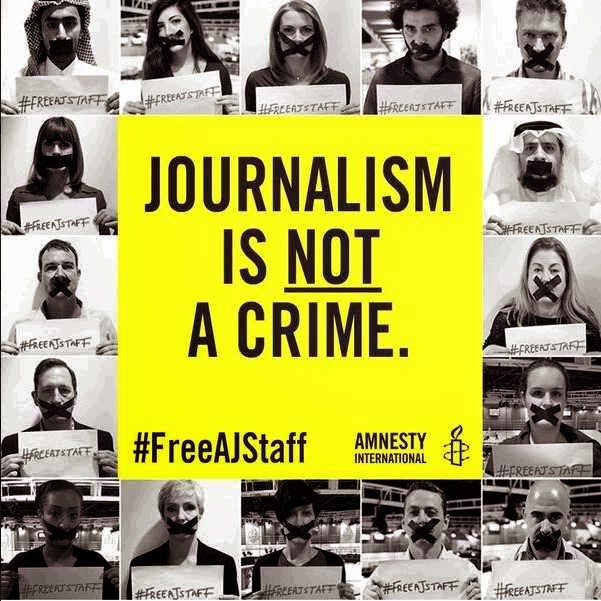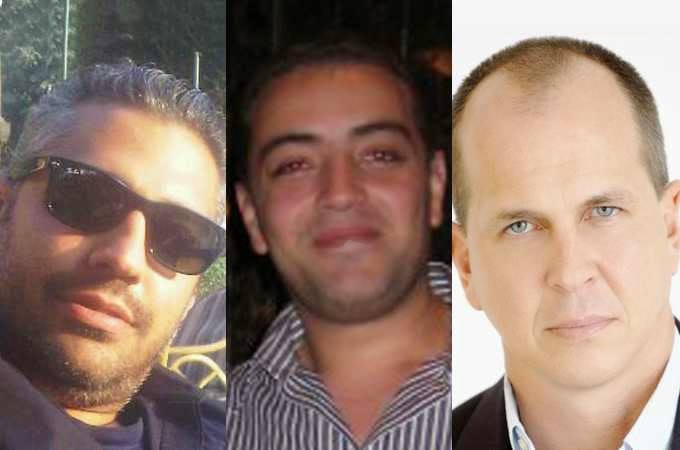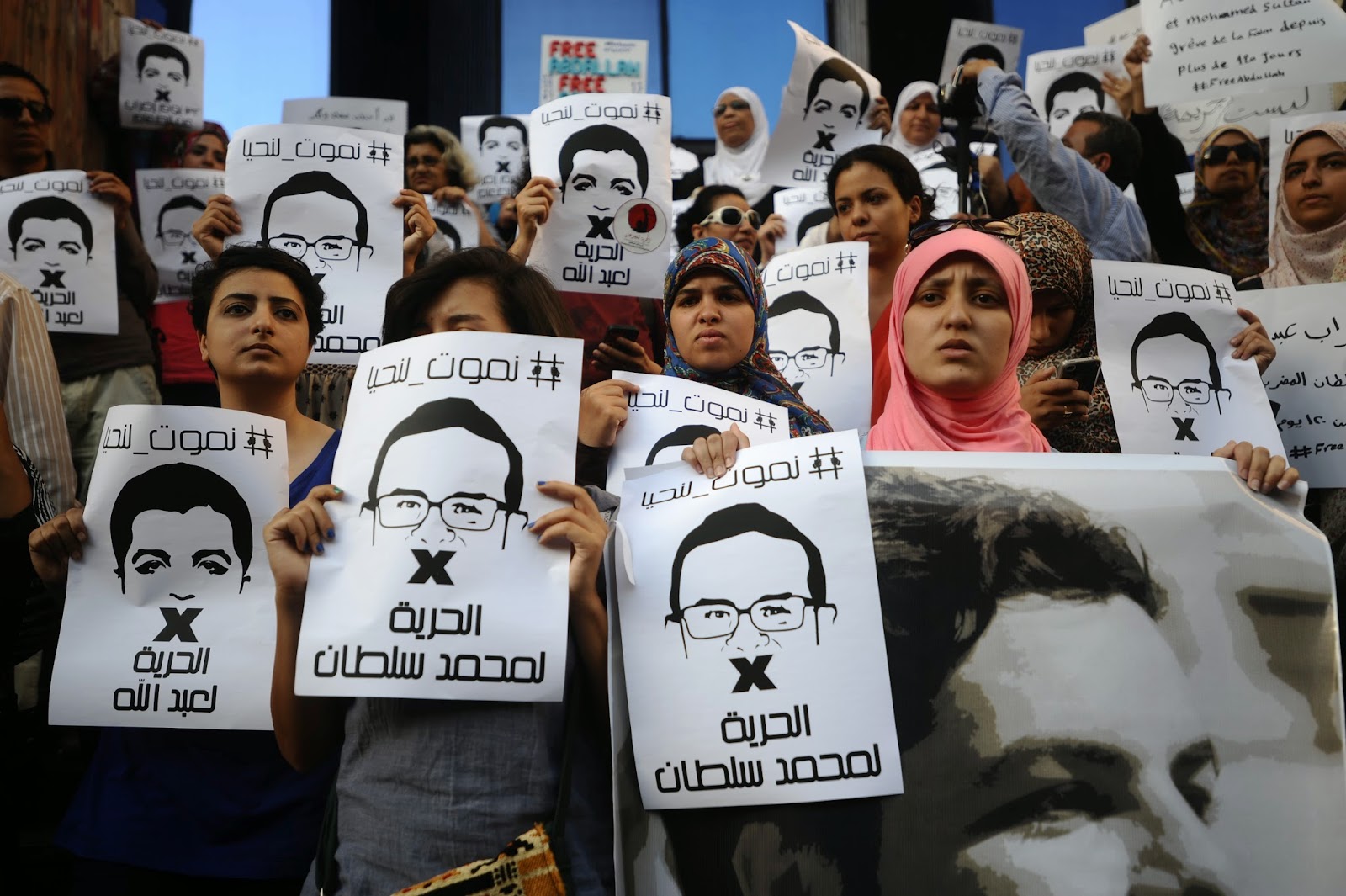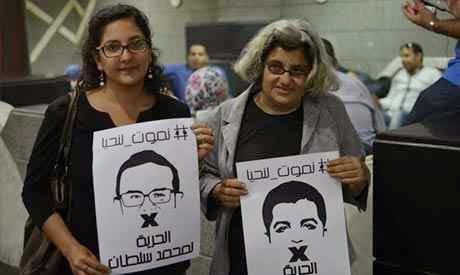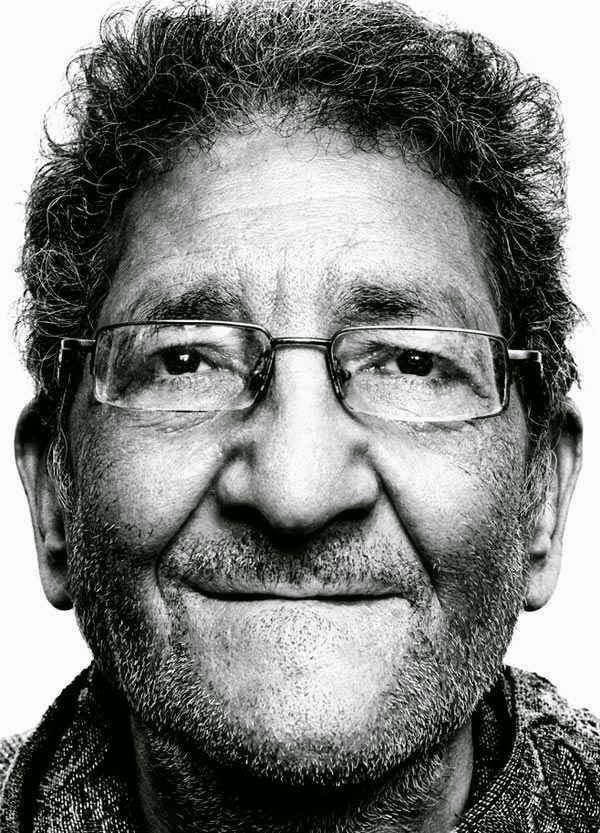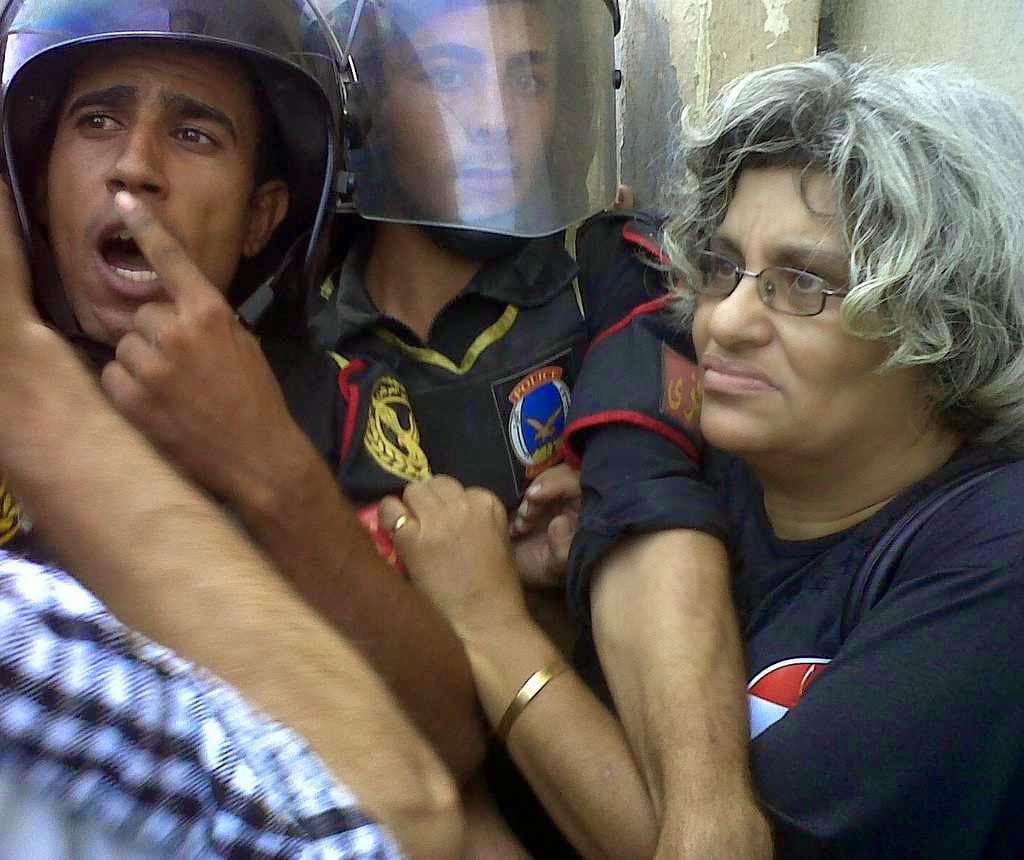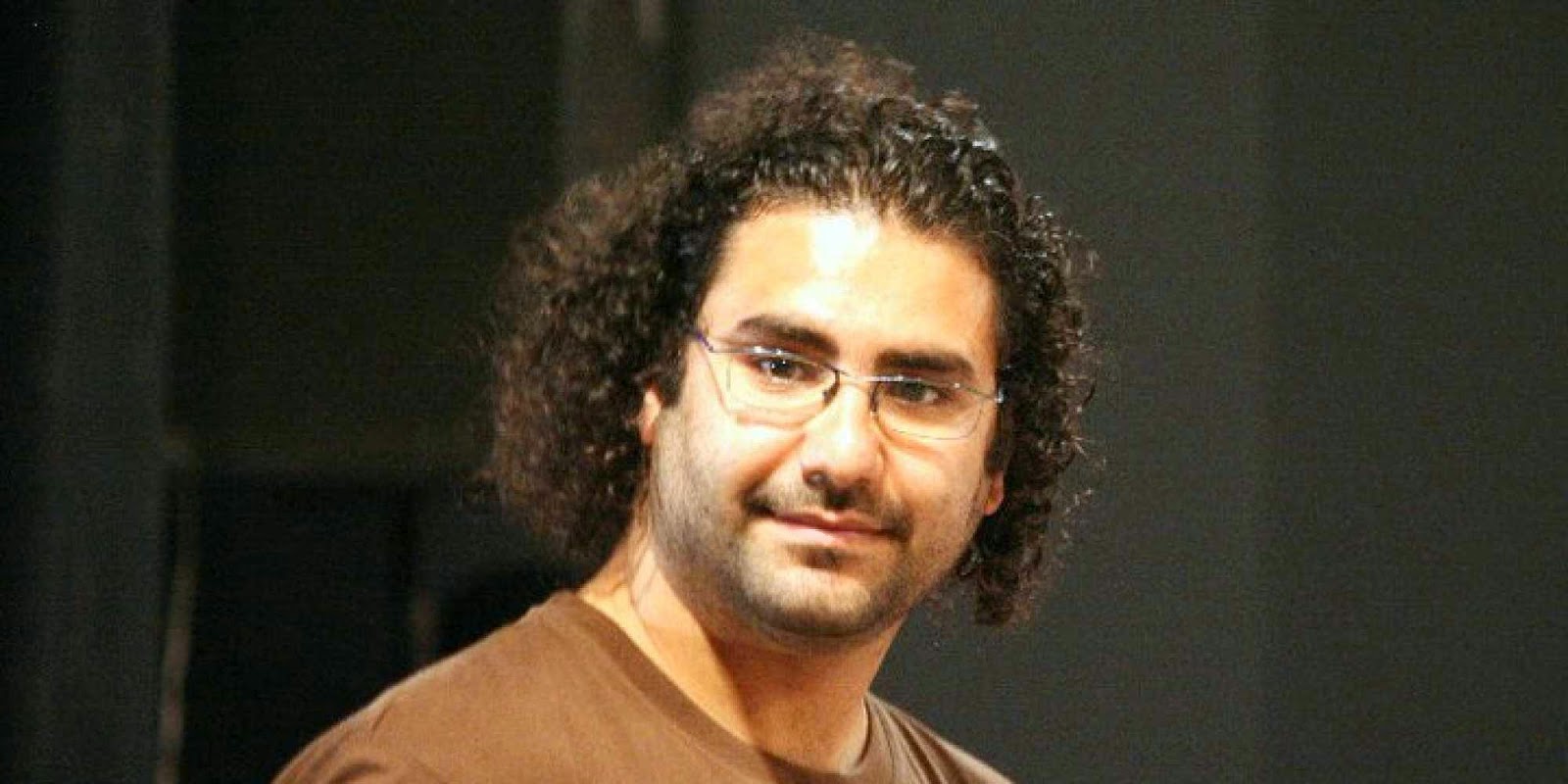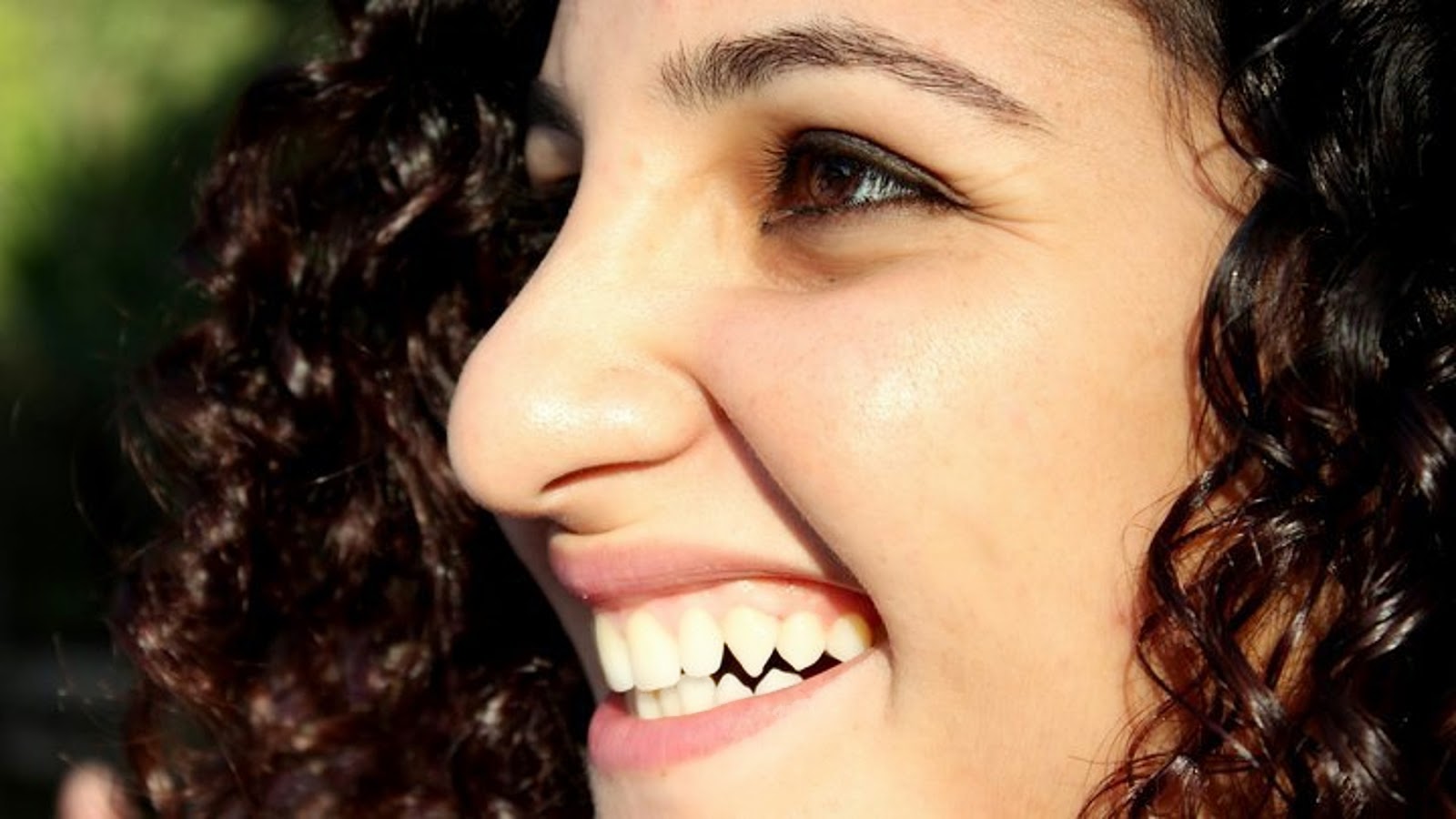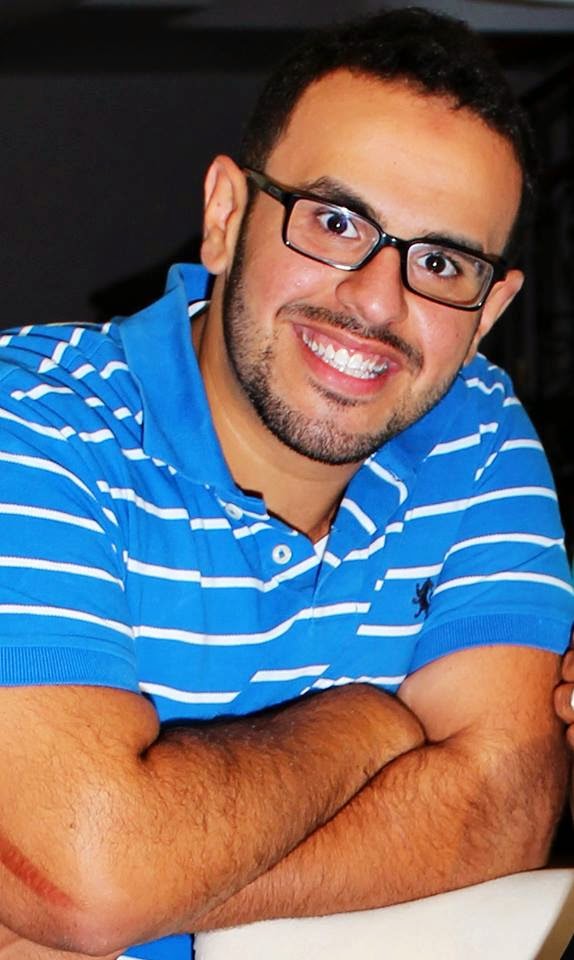“Journalism is Not a Crime” is a worldwide campaign to
support all the imprisoned journalists all over the world and demand their
freedom.
According to the Committee to Protect Journalists, 211
journalists are jailed worldwide in 2013.
In September 2014, the CPJ listed 11 jailed journalists in Egypt.
- Al Jazeera English Journalists
Peter Greste, an Australian, Mohamed Fahmy, a
Canadian-Egyptian national, and Baher Mohamed, an Egyptian – were detained in
Cairo on December 29, 2013.
The Egyptian prosecutor has accused Al Jazeera journalists
of producing "false news" in the country. However, their friends and
families have gathered all their work so people can decide themselves.
“Egypt has witnessed an alarming escalation in attacks on
press freedom since Mohamed Morsi was deposed in July 2013 with a number of
journalists facing arrest for reporting on human rights violations carried out
by the security forces. Amnesty
International urges the Egyptian authorities to respect freedom of expression
and allow journalists to carry out independent reporting into all issues,
including criticizing the government, without the threat of intimidation or
arrest,” Wrote Amnesty International.
- Mahmoud Abouzeid "Shawkan"
A freelance photojournalist arrested on August 14, 2013
while covering the dispersal of Rabaa sit-in.
Abou Zied, also known as Shawkan, was not comfortable going
to Rabaa Al-Adaweya on 14 August following reports that other photographers had
been assaulted by the protesters there, according to Louis Jammes, a French
artist and friend of Shawkan, who was detained at the same time.
 |
| Detained freelance photojournalist; Shawkan |
Shawkan has been in prison for more than a year, facing 12
charges including murder and possession of a weapon amongst others.
His friends and family launched a campaign; Freedom For Shawkan on facebook.
A silent protest of journalists demanding the freedom of Shawkan
- Many other journalists imprisoned
“Journalism is not a
crime” is not only a slogan, it’s the truth. Journalism should never be a crime
or accusation.
A dozen Egyptian journalists joined scores of political
detainees and activists in an ongoing hunger strike against the restrictive
anti-protest law, calling for the release of those jailed under it.
“We begin this battle because we believe that freedom of
expression through protesting or writing, or any peaceful method, is an
established right,” the journalists said in a statement.
“When journalists are threatened, arrested, attacked or
otherwise cowed into silence, the truth dies. It is up to all of us to keep it
alive,” Conor Fortune, News Writer at Amnesty International,
 |
East Africa journalists protest against Egypt's crackdown on
journalists
|
